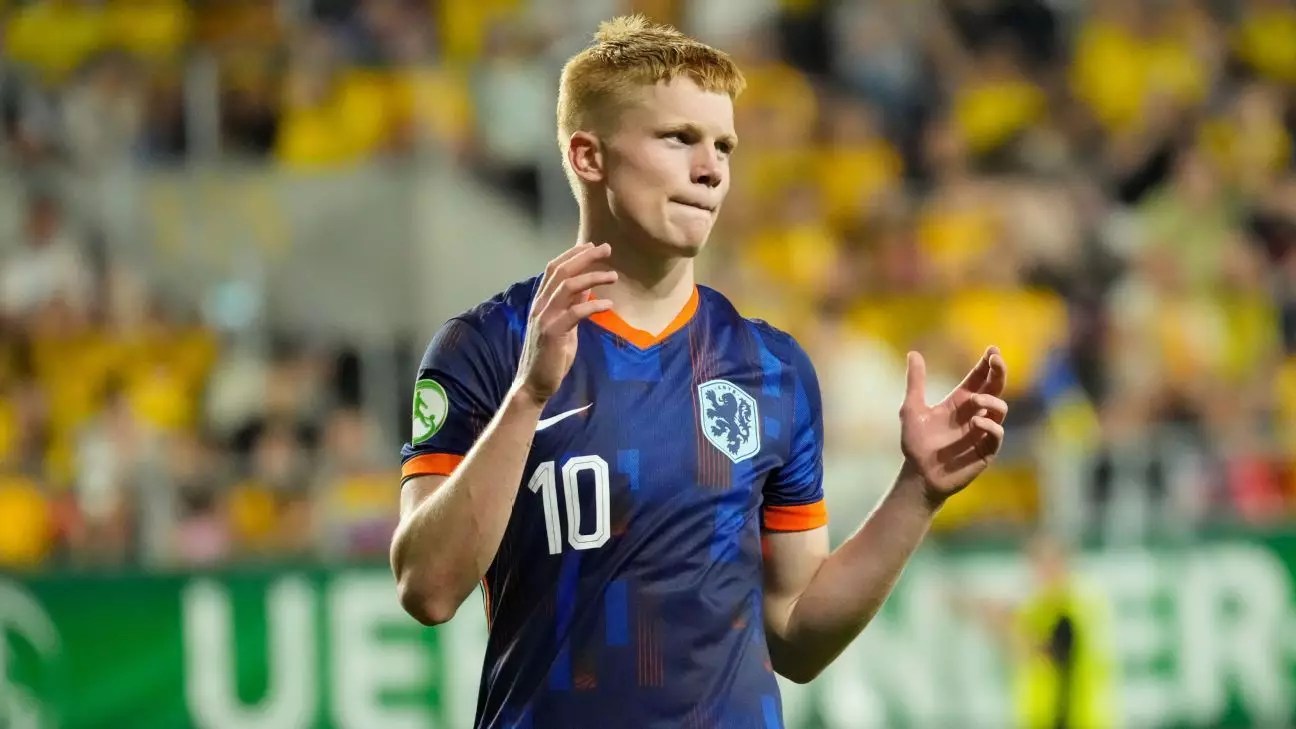Liverpool’s transfer approach this summer isn’t just about spending vast sums, but about smart asset management and strategic negotiation. The Reds are reportedly contemplating including promising winger Ben Doak in a deal to acquire Crystal Palace’s England international defender Marc Guéhi. Guéhi, valued at around £50 million, represents a significant investment, one that Liverpool are hesitant to meet with pure cash. Their reluctance highlights a larger trend among elite clubs: in an era of inflated fees, leveraging young talent in swap deals is becoming critical.
Doak’s profile makes him a fitting pawn in this chess match. Having demonstrated versatility and offensive prowess on loan at Middlesbrough, his three goals and seven assists underline his potential to become a valuable asset, not merely a bargaining chip. Crystal Palace’s prior interest in Doak further sweetens the proposition, allowing Liverpool to bridge financial expectations without overextending themselves. This tactic, consistent with Liverpool’s pragmatic transfer ethos under Jurgen Klopp, leverages academy prospects while bolstering the squad with an established Premier League defender.
Real Madrid Eyes Rising Dutch Talent: Kees Smit
Real Madrid’s interest in Kees Smit, the 19-year-old Dutch prodigy from AZ Alkmaar, signals their ongoing commitment to unearthing future superstars. Smit’s MVP accolades at the recent European Under-19 Championship and his seamless transition from youth ranks to senior squad mark him as a player with immense growth potential. Madrid, known for their galaxy of stars, are quietly reinforcing their long-term pipeline with talents like Smit who may bloom into world-class midfielders.
This reflects a subtle yet deliberate contrast with Liverpool’s urgency for proven Premier League-ready players like Guéhi. Whereas Liverpool opt for immediate defensive reinforcement, Real Madrid project a more patient build strategy by securing Smit under a contract until 2028. This forward-looking approach emphasizes sustainability and talent development amid the shifting dynamics of modern football economics.
Manchester United’s Tactical Downgrade and Market Constraints
Manchester United’s pursuit of Fiorentina’s Moise Kean exposes both strategic uncertainty and time pressure. Despite Kean’s pedigree—marked by stints at Juventus, Everton, and PSG—he is categorically a backup target with a substantial £44 million release clause. That clause’s looming July 15 deadline creates a narrow window to act decisively.
The Red Devils’ need to drop other transfer pursuits, evidenced by their recent rejection of a £62.5 million bid for Bryan Mbeumo, portrays a club juggling ambition against fiscal realism. United’s cautious approach, especially when compared with their historically aggressive spending, might signal an organizational shift towards more calculated, need-based acquisitions rather than marquee splashes.
Implications of Contract Disputes and Player Agency: The Gyökeres and Partey Cases
Player-club relationships continue to unravel in highly publicized contract disputes, revealing tensions that often escape fans’ view. Viktor Gyökeres’ refusal to return to Sporting CP after dismissive remarks by club president Frederico Varandas illustrates the critical role respect and communication play beyond money.
Gyökeres, a prolific scorer with 49 goals last season, is courted by top clubs, underscoring how players increasingly assert agency over their trajectories. Meanwhile, Thomas Partey’s impending Arsenal exit after contract renewal breakdown highlights Premier League clubs’ difficulties retaining experienced international players amid rising wage expectations and evolving career priorities. Partey’s slow deliberation on his future contrasts sharply with Arsenal’s swift moves to sign Brentford’s Christian Nørgaard, signaling a push for tactical continuity regardless of personnel upheavals.
A Subdued but Shifting Market for Defensive Roles
Numerous defensive transfers point toward a market in flux: AC Milan’s decision not to purchase Kyle Walker outright, Atlético Madrid’s Reinildo leaving on contract expiry, Tottenham’s Ashley Phillips being eyed by Sheffield United. These moves collectively signify a cautious approach among clubs for defensive investments, possibly due to valuations and the growing emphasis on multifunctional players.
Nottingham Forest’s pursuit of Botafogo striker Igor Jesus juxtaposed with defensive market activity reveals strategic prioritization: attacking talents being fast-tracked while clubs navigate uncertainties about defensive signings. The nuanced tussle for defensive reinforcements, shaped by loan-to-buy decisions and expiry-driven departures, will likely influence team stability ahead of the new season.
Emerging Battles in Midfield and Attacker Recruitment
Midfield recruitment remains frenetic with clubs like West Ham vying for Borussia Monchengladbach’s Rocco Reitz, battling Brighton and Fulham. The presence of a heftily priced £20 million release clause injects urgency but also price transparency into negotiations, a welcome development amid the often opaque dealings.
Meanwhile, transfer talk surrounding players such as Joao Pedro to Chelsea, Samuele Ricci to AC Milan, and Tammy Abraham’s potential Sojourn to Besiktas paints a vivid picture of clubs aggressively enhancing firepower. These signings are not mere squad depthers but signal intent to challenge at both domestic and continental levels.
—
The contemporary football transfer landscape resonates with themes of prudence, asset leverage, and market adaptation. Clubs like Liverpool and Real Madrid reveal contrasting philosophies: immediate tactical fixes versus patient long-term planning. Manchester United’s cautious maneuvering and the visible strain in player-employer relations further complicate traditional transfer narratives. This dynamic ecosystem is shaping a future where transfers are as much about strategic negotiations and player power as about on-field demands.


Leave a Reply